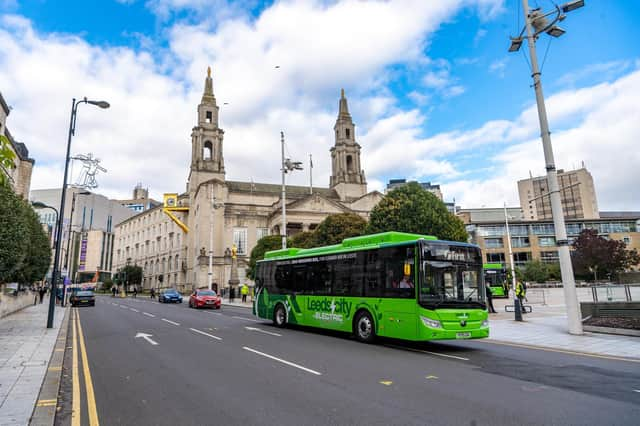Passengers back plan to bring West Yorkshire buses under public control, survey finds


Mayor Tracy Brabin is looking to deliver a key election pledge by launching a bus franchising scheme in 2027, claiming it would make services across the region more reliable and more affordable.
The current plan, which is undergoing a public consultation, would see West Yorkshire Combined Authority (WYCA) take full control of the bus network so it can make decisions about routes, services and fares.
Advertisement
Hide AdAdvertisement
Hide AdIt has been met with resistance from private bus companies, who claim they can work with WYCA to improve services with a strategy that is cheaper for the taxpayer and less risky.
A survey of 1,018 adults in West Yorkshire, done for the anti-privatisation group We Own It, found that 71 per cent agreed with buses being brought under public control while seven per cent disagreed.
The figures also show 75 per cent of people who use the bus on a daily basis support franchising and 10 per cent of those passengers oppose it.
Matthew Topham, a campaigner at Better Buses for West Yorkshire, said: “The only thing less shocking than a bus not turning up in Yorkshire, is the hunger folks have for a bus network that puts people ahead of profit.”
Advertisement
Hide AdAdvertisement
Hide Ad“Great Britain’s experiment with private control is an international outlier. No one else in Europe does it and that makes sense. Only public control gives our communities, not overseas shareholders, the final say over services.”
The public consultation is due to close on January 7 and Ms Brabin said she will review the responses before making a final decision in March.
The Labour mayor, who is standing for re-election next year, is looking to follow in the footsteps of her counterparts in Manchester and Liverpool who have already brought buses back under public control.
She has previously said private operators are “focused on satisfying shareholders” and have driven passengers away in recent years, by running unreliable services and cutting routes which do not generate a significant profit.
Advertisement
Hide AdAdvertisement
Hide AdThey have also become heavily reliant on taxpayer-funded subsidies, which pay for around a fifth of the services they run.
However, operators have proposed another approach to franchising, which is known as an “enhanced partnership plus”.
The proposal would allow them to continue to run services and work in partnership with WYCA to make decisions about routes, services and fares.
The operators claim it would allow Ms Brabin to deliver her objectives – of bus making services cheaper, greener and more reliable – but would not require the taxpayer to foot the bill and take on the risk.
If the franchising plan is approved, WYCA will need to spend around £20m on the staff and facilities it needs to run the network and £70-£95m on buying and upgrading bus depots.